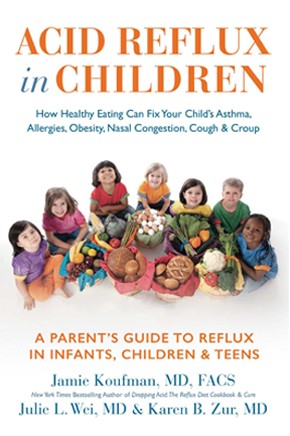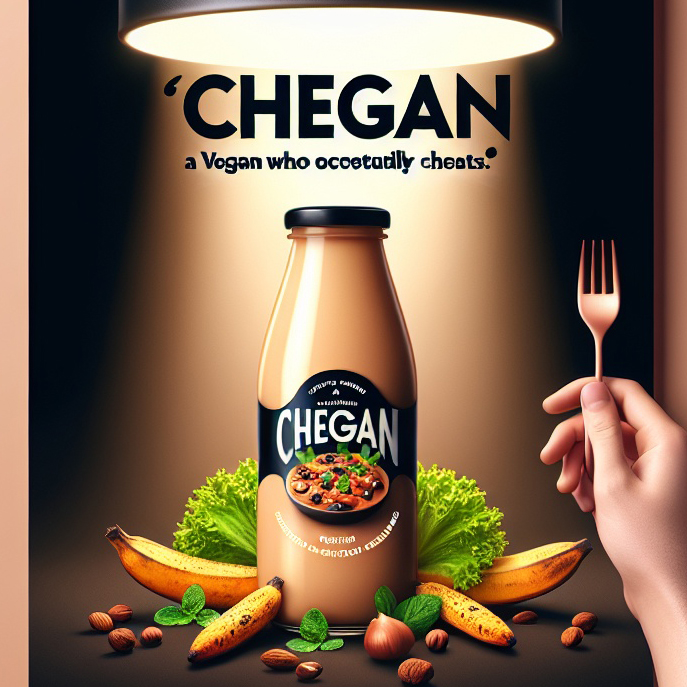
Alginates: From Seaweed to Acid Reflux Treatment
At-A-Glance
- Brown seaweed, Macrocystis pyrifera, is an ocean kelp that contains hydrocolloids, which consist of cellulose, gelatin, and pectin.
- The hydrocolloid, sodium alginate, is used in novel antireflux products such as Gaviscon Advance. Once swallowed, alginates form a harmless gel that rises to the top of the stomach and creates a mechanical barrier at the lower esophageal sphincter (LES) to help prevent acid reflux.
- Alginates are especially important for people with silent reflux who may reflux at night during sleep. No other medicine does what alginates do, and they aren’t absorbed into the bloodstream.
- Although alginates are usually considered adjunctive (“add-on”) treatment, refluxers who take alginates as part of their antireflux programs get better and get better faster. I strongly recommend alginates.
Note: Respiratory Reflux (RR) and Laryngopharyngeal Reflux (LPR) are synonyms and the terms can be used interchangeably. Going forward, I prefer the term RR and so should you; it is easier to pronounce, more intuitive, more comprehensive, and implies that RR can affect any and all parts of the respiratory system, which it does.
We have been using alginates, a product of seaweed, for decades to treat acid reflux. But it is worth noting that seaweeds have other health benefits and they are increasingly becoming a valuable food source. In addition, seaweed is also planet-saving; it helps improve water quality and cool the planet.
What Is An Alginate?
Brown seaweed algae, Macrocystis pyrifera (featured post photo) is a giant kelp that contains hydrocolloids, which consist of cellulose, gelatine, and pectin. The hydrocolloid, sodium alginate, swells to form a gel used ro make antireflux products such as Gaviscon Advance.
Once in the stomach, alginates rise to the top of the stomach and form a foam, a physical barrier, at the lower esophageal sphincter (LES); this helps prevent reflux, especially Silent Nocturnal Respiratory Reflux. No other type of medicine works like alginates. In addition, alginates are vegan and not absorbed into the bloodstream.
Although alginates are usually used as adjunctive antireflux treatment, refluxers who take alginates as part of an antireflux program get better and get better faster. I believe that alginates provide an important arm of antireflux therapy.
Which Alginate Should I Get?
Alginates are non-medicine medicines, which means they are sold without a prescription. At this point, I only recommend UK Gaviscon Advance Aniseed and Reflux Gourmet; both are available on Amazon. The “UK” stands for “United Kingdom” and it is not available in the U.S.; again, UK Gaviscon Advance can be purchased online. BTW, while there are other many alginate products available online, in my opinion, none of them even remotely compare to Gaviscon or Reflux Gourmet.
Meanwhile, I prefer UK Gaviscon Advance to Reflux Gourmet, because Gaviscon is less expensive and seemingly more effective than Reflux Gourmet. Here are the cost numbers: A 500 ml (17 oz) bottle of Gaviscon Advance costs $35 ($2.06 per oz); and an 8-ounce tube of Reflux Gourmet costs $28 ($3.50 per oz) … it’s 70% more expensive than Gaviscon.
Whatever you do, do NOT buy US Gaviscon in your local pharmacy; US Gaviscon is an antacid with very little alginate in it it is an old and inferior product, nothing like Gaviscon Advance. .
And flavor matters! If you order UK Gaviscon Advance, make sure that you get the Aniseed flavor and not the peppermint. I tell my patients, just Google, UK Gaviscon Advance Aniseed 500 ml bottles and you will probably land on Amazon that currently has the best price … but, sometimes you can find a less expensive supplier. And yes, you will probably need two bottles a month, at least for the first month or so.
Warning: If you are on a salt restricted diet, sodium alginates may not be for you. Gaviscon contains 58 mg sodium (main component of cooking/table salt) in each teaspoon or 5 ml; and for Reflux Gourmet, there is slightly less salt, 40 mg of sodium for 5 ml.
When in doubt, ask your personal doctor if you can take a sodium alginate. For more about dietary salt, see Dietary Guidelines for Americans, which recommends that adults limit sodium intake to less than 2,300 mg per day, about a teaspoon.
When and How Should I Take Alginates?
If you have heartburn and symptoms after meals, during the day, or if you are experiencing “rebound hyperacidity” after coming off a PPI, you can take Gavison after each meal. If, on the other hand, you have silent reflux (no heartburn or indigestion), especially Silent Nocturnal Respiratory Reflux, I recommend taking the gaviscon (just) after dinner and before bed.
Gaviscon is hard to pour, so if you don’t share it with anyone else, I think that you can drink straight out of the bottle; it’s your bottle. I recommend a “normal swallow amount” that is about two teaspoons. Or you can measure with a spoon if you like.
Remember, refluxers who use alginates along with acid-suppressives and diet/lifestyle changes get better faster and more completely than those who do not take alginates.
Alginates Are Everywhere
Alginates are used for wound healing, drug delivery, dentistry, tissue engineering, as well as in the food industry. Sodium alginates are everywhere in the food you eat, mainly as a food thickener and/or stabilizer, for sauces, salad dressings, fruit drinks, ice cream, and frozen fish, as well as for candy for anti-adhesive packaging, and for fruit preservation.
The alginate listed on food labels may be: Cacalgum, Sanofi, Diagin, Diamalt, Keltex, Kelco, Lamitex, Protan, Manutex, Kelco, and propylene glycol esters; these are “brand names” for some alginate products.
Gulp? Some fast food and frozen onion rings are made of shredded onions and sodium alginate, which is extruded through a ring-shaped dye, cut off, and then dropped into a calcium chloride bath to firm up the “onion rings.”
References
Structures, Properties and Applications of Alginates
Alginates: From the ocean to gastroesophageal reflux disease treatment
Alginate therapy is effective treatment for GERD symptoms: a systematic review and meta-analysis
Alginates for Protection Against Pepsin-Acid Induced Aerodigestive Epithelial Barrier Disruption
For more information about diagnosis and treatment of reflux laryngitis, see my two companion books on Amazon: Dropping Acid: The Reflux Diet Cookbook & Cure and Dr. Koufman’s Acid Reflux Diet. And, if you would like to schedule a virtual consultation with me, you can book it online.










